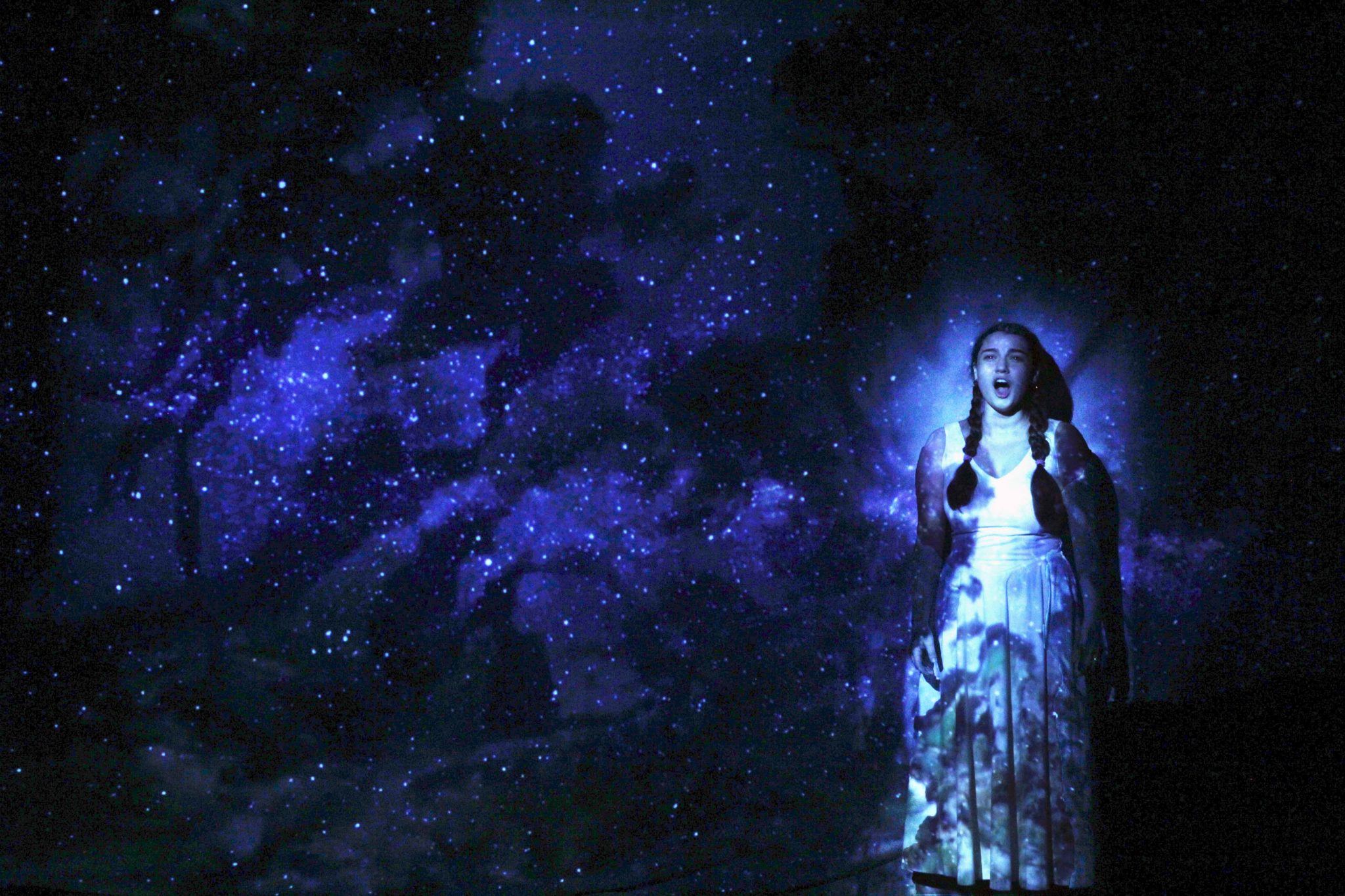
Opera Theatre of Yale College
Over forty years ago, a Yale senior named Carolyn Abbate ’77 stumbled upon an unfinished Claude Debussy opera in the Bibliotheque Nationale in Paris. The opera, “La Chute de la Maison Usher,” was considered too fragmented to perform until then. But Abbate, at only 21 years old, completed the first reconstruction and helped produce the world premiere of the opera, which took place in Jonathan Edwards College in 1977.
This family weekend, the Opera Theatre of Yale College will perform the opera at Yale once again, this time in the Saybrook Underbrook.
“[This opera] gives us a lot of freedom because it’s a reconstruction,” said director Kohl Weisman ’19. “It’s also the centenary of Debussy’s death, and while doing research into the score we found that Yale was the first place to reconstruct it. There were a lot of things that tied us to it, but most of all it was just the opportunity to sing Debussy.”
Debussy’s opera is based on the Edgar Allan Poe short story “The Fall of the House of Usher.” In the story and the opera, an unnamed friend visits Roderick Usher, the last living male in his family line who lives with his sister Madeline in their crumbling family mansion. The opera chronicles his escalating insanity and obsession with Madeline.
“I think it’s a really cool way to look at a short story that many people might have read,” said Raphaël Laden-Guindon ’19, who serves as the opera’s artistic director and will play the role of Roderick in the production. “We’ve turned it into something thrilling, and sort of scary.”
Not unlike Carolyn Abbate in 1977, Laden-Guindon stumbled unintentionally upon the score to “La Chute de la Maison Usher.”
“I was just digging around in the library looking for operas that looked interesting, and I found this,” Laden-Guindon said. “I had no idea it existed.”
Staging a Debussy opera is a unique opportunity, according to the members of the production.
Lisl Wangermann ’21, who will play the role of Madeline said the show is “not the stereotypical opera.” Wangermann noted that because Debussy did not write many operas, the music is “definitely unique just by itself.”
Because the music exists only as a reconstruction of Debussy’s unfinished sketches, the company decided to insert additional Debussy piano music into the opera score. Weisman noted that the opera theater decided to add a prelude, divertissement and postlude, thus adding an interesting element to the show — “the pianist playing a more central role.”
In addition to bolstering the opera with more music, the company will add original visual elements to the opera, Wangermann said.
“We have definitely taken our own spin on it and tried to fill in some of the gaps with the use of projections,” Wangermann noted.
She said that the group has been fortunate to work on projection design with Camilla Tassi, a special research fellow at the School of Drama.
Both Laden-Guindon and Wangermann noted that the opera took on new significance and difficulty in the context of current political events.
“It’s definitely been tough, especially with what’s happened this last weekend: the Kavanaugh hearings,” Laden-Guindon said. “[Roderick] is this disturbed guy who does awful things from a line that is privileged, and he’s losing everything.”
Wangermann echoed Laden-Guindon’s comments. She said that when the company decided to produce the opera at the end of last year, they had “no idea how relevant it would be in light of the current political news,” asserting that she really wants to do Madeline’s story justice.
Weisman also emphasized the importance of Madeline’s role in the opera and mentioned that the opera theater’s added postlude was intended to give more closure to her story.
“I think Madeline is definitely the one that people will come away remembering,” Weisman said.
After “La Chute de la Maison Usher,” the company will produce two other operas this academic year, including a baroque opera in November and an opera by Aaron Copland in February.
Eli Mennerick | eli.mennerick@yale.edu







